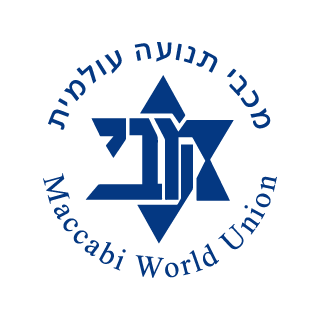| The Dear Friends, The story we read during our traditional Seder[1], the Pessach Haggadah[2], guides every Jewish family’s celebration of the Festival of our Freedom. It is the Liberation Epic of our People from the yoke of slavery under the Pharaohs of Egypt. Reading its dramatic narrative, perusing the color illustrations, and the whole family, from the oldest & youngest, women & men, singing songs together in praise of God’s supremacy over all of His creation, and participating together in reciting its texts – is an astonishing exercise in the education of our entire People through deeds and memory. The Haggadah opens with the Torah’s commandment to teach: “Ve’higadta le’Bincha”[3] (“and you shall tell to your son”) about our Exodus from Egypt. Indeed, that is its entire concept. The Haggadah sets out many orders and instructions to the diners around our memorable feast. Among these, there is the fundamental instruction to drink Four Cups of Wine as an expression of joy. From the time of the Mishnah[4] our Sages instituted this order. Amongst other concepts, they explain that the Four Cups symbolize: the four empires[5] that oppressed Israel, and 4 measures of punishment each empire suffered (all four eventually collapsed); the four cups in the story of Joseph and Pharaoh’s cupbearer[6]; Pharaoh’s four decrees to oppress the Jewish People[7]… Of all these, the best known explanation is undoubtedly that the Four Cups represent the Four Levels of God’s Redemption of our People as noted in Shemot (Exodus) 6:6-7: “Ve’Hotzeti… ve’Hitzalti… Ve’Ga’alti… Ve’Lakachti…”[8]: “And I will bring the Jewish people out of their slavery in Egypt… and I will save them… and I will liberate them… and I will make them My People.” For these 4 Degrees of Redemption we drink 4 cups of wine as joyous symbolic recognition of each level; together, they formed the act of divine redemption which we celebrate as the central theme of our Passover Festival. However in the text of the Torah, there is a fifth level of redemption that immediately follows those cited (in Shemot 6:8), “Ve’Heveti“[9], “and I shall bring them to the Land of Israel”. If so, why did the Sages of Israel not include that expression? Why was it that as late as the 18th Century[10], we tried to connect to this fifth level of redemption with a new order for the Seder of Pessach – to drink a fifth cup? The Sages of Israel of the first and second centuries of the Common Era could speak of the glories of the past, but they could not do so in relation to the time in which they lived: The Great Temple had recently been destroyed; the national life of the Jewish People in their ancestral land was devastated. The Sages lived under the Roman yoke, the most comprehensively oppressive system under which the Jewish Nation had lived since the times of Yehoshuabin Nun[11]. How could they include the term that marks Jewish national redemption, “Ve’Heveti”, “and I will bring them [to the Land of Israel]”, at a time when the Jewish People were being systematically expelled from it? Chaza”l[12], the Sages of Israel, could not do it. It was totally incongruent with the terrible reality of their times. Celebrating the redemption of the past was possible, but asking more than that from our People in the time of the oppression in which they lived, would have been cruelly inhumane. Thus, the first voices in favor of instituting a Fifth cup were heard only in the 18th century. They grew louder with the establishment of the State of Israel in 1948: a petition circulated to include the fifth cup in the Passover Seder[13] as recognition that the People of Israel had now truly begun the return to our Ancestral Land. Desperately desired and dreamt of for so long, “Ve’Heveti”, “and I will bring them [to the Land of Israel]”, was now reaching fulfillment; surely it merits an additional cup? So, what should we do now, in this wonderful era that celebrates the reconstructed State of Israel? Well, we should all drink the 4 cups of wine, and then we should indulge our fifth cup to signify our joy, our recognition of, and our gratitude for Redemption, our celebration of the wonderful times in which we live, this era of our recovered national life and the joys of so many in our Diaspora communities. May we all celebrate a happy and contented Chag. Let us all feel the relevance of our Passover Seder to our times, celebrating our redemption when we came out of Egypt, and our joy in our present redemption which has forever changed the destiny of our People. May we raise our cups of wine, the Four, and the Fifth, in gratitude for witnessing and living in this Era of our renewed joy. May we all participate in this important Passover, so significant for our families, our Communities, and for our bond with Israel. Chag Pessach Sameach! Chazak ve’Ematz! Rabbi Carlos A. Tapiero Deputy Director-General & Director of Education Maccabi World Union [1] The magnificent book that guides the whole Pesach dinner, composed mostly by the Sages of the Mishnah, 1st and 2nd centuries of the common era;[2] The family dinner celebrating our liberation from the Pharaonic yoke over 3300 years ago;[3] Exodus XIII, 8.[4] The first part of the Talmud;[5] The Assyrian, Babylonian, Persian, and Roman Empires;[6] Genesis 40:1-23.[7] First: He enslaved the Israelites so that their physical exhaustion would prevent them from breeding (Shemot I 8-14). Second: He secretly instructed Hebrew midwives to put to death by devious & hidden means all males born to their fellow Hebrew women (15-21). Third: His comprehensive order to “all his people” to throw into the Nile all males born to the Hebrews. Fourth: He commanded the Hebrews to not serve the God of Israel.[8] “Therefore, say to the children of Israel, “I am the Lord, and I will take you out from under the burdens of the Egyptians, and I will save you from their labor, and I will redeem you with an outstretched arm and with great judgments. And I will take you to Me as a people, and I will be a God to you, and you will know that I am the Lord your God, Who has brought you out from under the burdens of the Egyptians.”[9] “I will bring you to the land, concerning which I raised My hand to give to Abraham, to Isaac, and to Jacob, and I will give it to you as a heritage; I am the Lord.”[10]In the writings of Rabbi Moshe Chagiz in Shtei HaLechem, early eighteenth century.[11] Joshua the great Conqueror of the Land of Israel, who established Jewish national life there and founded the time of the Judges of Israel.[12] Chaza”l = Cha’chamim zichronam li’brachah: the Sages [of the Talmud], be their memory be a blessing.[13] When the State of Israel was established, Rabbi Menachem Kasher petitioned the Chief Rabbinate to institute a fifth cup at the Seder; he did not succeed. MACCABI WORLD UNION |
















